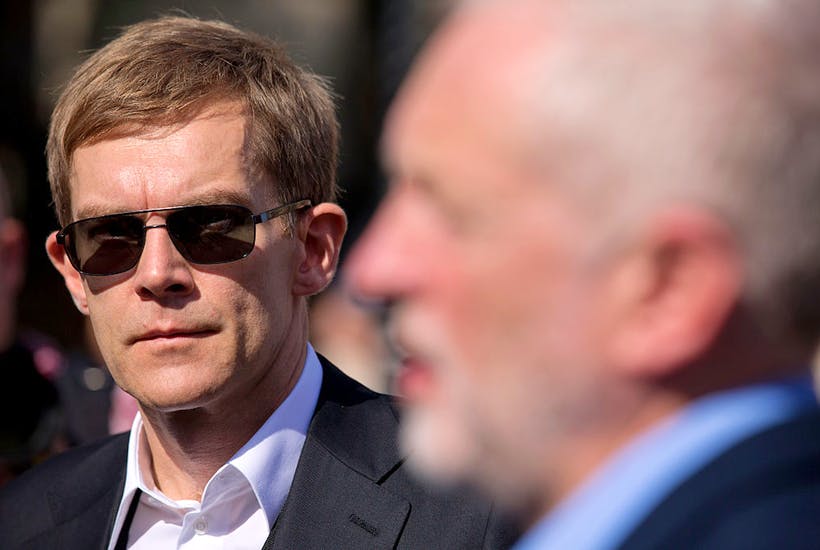Could Britain remain in the Customs Union after Brexit? That is the question of the moment, the issue that currently troubles a lot of people in politics and government. It raises another question: who will decide whether we do indeed remain in the Customs Union? Here’s an interesting answer being given, in whispers, around Westminster and Whitehall: Seumas Milne.
The theory goes like this: the Tories are split on the CU, so Labour’s position on it will be decisive. If Jeremy Corbyn brings Labour in behind the pro-CU Tories (and the SNP) then there is a comfortable majority for staying in, no matter what either Theresa May, or the DUP might have to say about it. Hence there is a huge interest in Labour’s position, in Brussels and Whitehall and elsewhere. And hence Corbyn’s recent hints about the Labour position have raised hopes that he may be about to abandon the deliberate ambiguity on Brexit that has served the party quite well for several months now.
On Monday, Corbyn said “we have to have a customs union” which, as students of the tedious language of Brexitology know, is not the same thing as the Customs Union. Does that mean he’s coming around to a “the” position though?
Those whispers suggest so. They say that Monday’s words follow a slow but significant shift in the balance of opinion among Labour’s big players. They say that John McDonnell, the shadow chancellor, is increasingly open to backing the CU. They say that his shift, added to shadow Brexit secretary Keir Starmer’s long-standing support, has pushed Corbyn – himself fairly ambivalent – close to endorsement of the Customs Union.
Yet the whispers say that significant obstacles remain, with Corbyn’s spin doctor chief among them. If you listen to the whispers, Milne is a truly committed opponent of the EU, a man who above all else wants the cleanest break possible from an organisation he sees as dominated by corporate interests and neoliberalism. And as such, Milne may just have a rather important role to play in Britain’s post-referendum history.
If he cannot persuade Corbyn to resist the drift of his senior colleagues, there is a real chance that Labour MPs will unite with Remain-minded Tories to insist on a form of Brexit that many Tory Leavers say they cannot countenance. Where that would leave Theresa May and the British party system is an open question.
But if Milne succeeds in bending Corbyn to his will, those Leavers may well get their way too, with a Brexit that puts Britain firmly outside the Customs Union, with all that that implies for business and — especially — Northern Ireland.
Will he succeed? He does seem to be swimming against the current. But it may not be prudent to write Milne off yet. Corbyn values his advice and understandably so. You don’t have to share Milne’s horrible political views to acknowledge the technical skill and strategic guile he has brought to the job. He’s turned his boss into a highly effective and almost professional operator who pulls off the hardest trick in politics: behaving like a traditional politician without being regarded as a traditional politician.
And this is the almost dizzying prospect offered by those whispers about Labour’s evolving position on the Customs Union: the fate of the United Kingdom, the health of its economy and the dreams of dust-dry Tories such as Jacob Rees-Mogg and Iain Duncan Smith may all now rest with a Stalinist public schoolboy who appears to abhor democratic capitalism and mixes with thugs like Vladimir Putin. What a time to be alive.







Comments